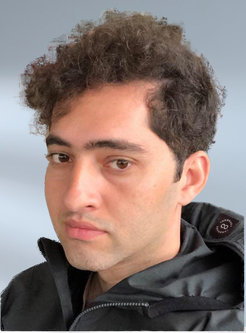Jahed Abedi receives 2019 Buchalter Cosmology Prize
Max Planck researcher honored for “bold and innovative step towards understanding quantum gravitational phenomena”
Jahed Abedi, a postdoctoral researcher at the Max Planck Institute for Gravitational Physics (Albert Einstein Institute), shares the $10,000 First Prize of the annual 2019 Buchalter Cosmology Prize with Niayesh Afshordi (University of Waterloo and Perimeter Institute for Theoretical Physics). The winners of the prize have been announced on 6 January 2020 at the 235th meeting of the American Astronomical Society in Honolulu.

“I am absolutely delighted about receiving the Buchalter Cosmology Prize!” says Abedi “It’s very rewarding to see our work being honored in this way.”
The Prize's judging panel recognized Abedi’s and Afshordi’s publication “Echoes from the Abyss: A highly spinning black hole remnant for the binary neutron star merger GW170817” as “a bold and innovative step towards understanding quantum gravitational phenomena, using observational data to demonstrate gravitational wave echoes from a binary neutron star merger, which could indicate that black hole interiors may be more complex than the simple regions predicted by general relativity.”
Abedi’s and Afshordi’s paper “Echoes from the Abyss: A highly spinning black hole remnant for the binary neutron star merger GW170817” was published in 2019 in the Journal of Cosmology and Astroparticle Physics and presents first tentative detection of post-merger gravitational-wave echoes from the binary neutron star merger GW170817. The detection of such echoes if correct would suggest the existence of quantum effects that change the event horizons of black holes in Einstein’s theory of general relativity.
“We dedicated our work to the memories of the late Stephen Hawking and Joe Polchinski, two of the champions of the black hole information paradox, as well as much of modern theoretical physics as we know it,” says Abedi. “Their presence is sorely missed in our community.”
The Annual Buchalter Cosmology Prize “seeks to stimulate ground-breaking theoretical, observational, or experimental work in cosmology that has the potential to produce a breakthrough advance in our understanding. It was created to support the development of new theories, observations, or methods, that can help illuminate the puzzle of cosmic expansion from first principles.”
More information in the Buchalter Cosmology Prize press release at http://www.buchaltercosmologyprize.org/#announcements.












